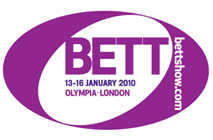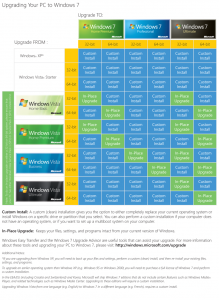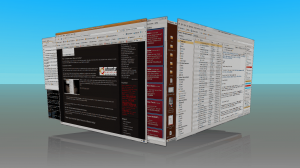Sam Varghese Got It Wrong?
On the 10th of February I updated my original “Is Canonical becoming the new Microsoft?” post to make it clearer that what I was actually asking was about whether the company is becoming the next organisation that we love to hate because of the increasing level of criticism aimed at it and it’s flagship product Ubuntu.
Today, the 15th February, Sam Varghese has written about a conversation iTWire have had with Mark Shuttleworth regarding my original post. Unfortunately not only does he seem to have missed the point of that original post, but he also writes as though I was making an accusation or statement rather than asking a question:
“He was responding to queries from iTWire about a recent blog post that has claimed Canonical is becoming the new Microsoft.”
He goes on to list some of the points I made:
The blog post had listed a number of reasons why the writer thought Ubuntu was allegedly becoming the new Microsoft: the inclusion of Mono as a default; the creation of Ubuntu One, a proprietary software repository; removing the GIMP and other applications from Ubuntu; changing the default search engine to Yahoo!; discussion about what proprietary applications should be included in the Ubuntu repositories; and the appointment of Matt Asay as chief operating officer.
Please, let’s get this straight. I have noteworthy opinions on one or two of the points I mentioned, but that was not the point of the post. They were supposed to be taken as examples of a collection of decisions that are apparently, in various quarters, providing the fuel for an increase of criticism overall.
Personally I really am not bothered about the Gimp being removed (it is easy to install), nor OpenOffice.org from the UNR (I actually install the desktop edition on my netbook anyway), nor am I upset about Ubuntu One; it’s an interesting solution, I use it sometimes myself and I’m sure a Windows version will be most welcome by many around the globe. Neither am I bothered about the Yahoo search thing (If Canonical can get money from Microsoft then that’s just funny IMHO), and I was actually pleased about Matt Asay’s appointment; he will bring a wealth of commercial experience, a good dose of much needed sales & marketing skills to the operation and I’m sure much more besides.
Sam also didn’t mention any of this from my original post:
I really like Ubuntu. I use it everywhere, I help in the Ubuntu-uk irc channel when I can and we [our company] promote Ubuntu to our customers and I [as an individual] to friends and family.
What concerns me is not any particular item in the list above: some I care about, others I do not; as I am sure many of you will do too. It is the increasing volume of criticism and vitriol as a whole. It is getting louder. This, I believe, is indicative of a turning tide that, if we are not careful, will result in Ubuntu losing popularity and more of the FOSS community exercising it’s freedom.
I did not claim Canonical was becoming the new Microsoft. I asked if it might be. I also (admittedly not very clearly on my first pass) was interested in the reasons why Canonical/Ubuntu is getting more criticism directed at it at a time when it is becoming more successful and more important and was hoping to solicit some ideas and opinion as to how we could stop that increasing criticism and prevent what seems to be a fairly common occurrence with big and successful companies; we are even seeing it with Google now. Ubuntu/Canonical is built on very different principles to traditional commercial enterprises, so could we, as the community, come up with any ideas to prevent the “love-to-hate” syndrome?
I don’t read iTWire much. I only noticed this post from Sam as I had a couple of referred clicks to this blog today and was interested in where they were coming from.
Sam, your article paints me with a brush which I do not believe to be fair or accurate.
Is Canonical Becoming The New Microsoft? [Updated]
[Update: It seems I made my point very badly. Please read this follow-up post where I try to explain what I was asking].
Whoah! Hold on everyone. Let me don my asbestos suit first will you.
Thanks.
Right then. I have been thinking about this post for some time and I think the time is probably right for pressing the old “publish” button.
I am not trying to incite riots or wars in the halls of residence or corridors of power but Canonical/Ubuntu is starting to catch more “bad karma” than is healthy for it IMHO.
- Let’s start with Mono. Yep. It’s been a prickly thorn for many and the concerns expressed are not going away. There’s no point in raking over the old ground; it is just one of the bad-karma attractants in a growing list.
- Then we have Ubuntu One. Proprietary, closed, caused much debate and friction when announced and now the possibility of a Windows version too.
- Next comes dumping GIMP, OOo and other much-loved applications from the default installation of versions of the forthcoming distribution.
- Then the discussion about what closed/proprietary applications should be made available in the Ubuntu repositories.
- Then we have the change of the default search engine from Google to
MicrosoftYahoo. - Then Matt Asay joins as COO which should be, and probably is, good news. Matt is well known, respected and experienced, yet some of his prodigious public commentary tugs at the heartstrings of many a Freedom Fighter.
I don’t really want to comment on the individual points above; the point is that this list is growing…
I really like Ubuntu. I use it everywhere, I help in the Ubuntu-uk irc channel when I can and we [our company] promote Ubuntu to our customers and I [as an individual] to friends and family.
What concerns me is not any particular item in the list above: some I care about, others I do not; as I am sure many of you will do too. It is the increasing volume of criticism and vitriol as a whole. It is getting louder. This, I believe, is indicative of a turning tide that, if we are not careful, will result in Ubuntu losing popularity and more of the FOSS community exercising it’s freedom.
I’m pretty thick-skinned (I think I will need to be with this post!) so if you think I am barking up the wrong tree, or just plain barking, then say so. But I am noticing increasing criticism and anti-Ubuntu rhetoric which is not just because it is becoming more popular, although that is certainly one factor.
Something is changing and I am not sure it is for the good of Ubuntu or our community.
BETT 2010 Review
 It’s that time of year when around 30,000 educationalists from all over the world descend on Olympia in London for the annual edu-geek-out that is BETT.
It’s that time of year when around 30,000 educationalists from all over the world descend on Olympia in London for the annual edu-geek-out that is BETT.
I’ve been going to BETT now for 3 or 4 years as an exhibitor or just helping to promote Open Source and Free Software with other like minded members of our amazing community.
This year we helped our friends and colleagues at Open Source Schools and Open Forum Europe on the Open Source Café. The simple objective of the show was to inform the education sector about Open Source and where to find help, advice and common ground with peers who’ve “been there” and “done that” already.
This year was, frankly, quite exceptional.
The stand received financial sponsorship from Red Hat, Linux IT, University of London Computing Centre and The Learning
Machine (Ingots) for which everyone is very grateful. Canonical, the commercial entity behind Ubuntu very kindly provided us with 600 Ubuntu 9.10 CDs (500 Desktop and 100 Server) to give away (thanks Larry) and there were a similar number of CDs containing a great collection of Education-centric Open Source desktop applications for Windows from Free Software for Students that was compiled and produced by Peter Kemp and David Wilmut. That’s around 1200 CDs in total full of completely Free goodness and fun. We encouraged all the recipients to copy, share and pass them on too! At the end of the show we had only a few (quite literally) of each remaining.
An interesting sum was carried out: The value of equivalent proprietary software was estimated to be over £4000 for the pair of CDs – I actually think that is rather low considering the volume of stuff in the Ubuntu repos including several real Enterprise grade applications such as OpenERP and Alfresco – so we have potentially delivered a net saving to the education sector of at least £2.5m. And of course this does not include all the free copies that will be made and passed around!
I noticed a real sea-change between this show and last year’s. I don’t actually recall speaking to one school or Local Authority this show that had no-idea of, or that wasn’t aware that they were using, Open Source Software. Most were really proud of their achievements, many were rolling out or had completed roll outs of OpenOffice.org rather than waste many thousands of pounds on unnecessary & proprietary Office Application Suite Licenses. Many more used and raved about Audacity – the ubiquitous audio capture and editing tool. No one I spoke with was reticent toward Open Source and many were keen to talk and share their experiences. This is what the Open Source Schools project is all about: using the principles of FOSS; of community, collaboration and sharing, and providing a location for this to happen. If you are involved in education and have any interest in Open Source, or even better are an expert, get involved and share your experience and knowledge gained.We also found time to meet up with friends and colleagues from Sirius, Mark Taylor and John Spencer. Sirius has been very successful in the education sector, they are the only Open Source vendor to be on Becta’s “approved supplier list”, and were nominated for an award this year for the work they and North West Learning Grid put in to the National Digital Resource Bank.
The national digital resource bank will deliver a vast range of publicly funded resources under a creative commons licence and populate your learning platforms, preparing them for effective use.
It will also create a sharing community of educators who will identify, review and improve a common set of national digital assets.
The world is really changing very fast. I go to parties and find people in all walks of life (i.e. not IT professionals) who are aware of Open Source, Governments are (some faster than others admittedly) waking up to the reality that FOSS provides significant benefits over proprietary software in many ways more than just money, and Enterprises are adopting not just Open Source Software but the principles behind it too to make their own businesses better.
BETT 2010 confirmed this trend in spades. Roll on BETT 2011.
Miles from Open Source Schools and one of the organisers of the event has also posted a review of the show that you can read here.
It’s definitely working…
My eldest son James, who’s 9, suggested something to me on Saturday morning over breakfast that made me quite proud and very chuffed.
The conversation went something like this:
“Dad, I think you should come to our school and talk to us about what you do. You know, Ubuntu and Open Source and all that.”
“Really James? Do you think so?”
“Yes, you’d have to be CRB checked [sic], but you could come and explain about Ubuntu. If Mr. Jeffs [The Headmaster] knew about it we’d have more money to spend on useful things for the school.”
“That’s interesting James, what do you mean?”
“Well, Ubuntu is free isn’t it. So we wouldn’t have to buy Microsoft Windows any more. And it is better than Windows isn’t it. And it doesn’t get viruses like Windows either does it Dad. So I’m sure Mr. Jeffs would think that it’s a really good thing…”
![]() Both my kids use Ubuntu at home; they are 5 & 9. They skip easily between Ubuntu & the Windows machines they use at school and with their friends. They also switch without difficulty between applications too. When necessary James does his homework in OpenOffice.org and takes a USB stick to school with the files saved in a nasty proprietary format.
Both my kids use Ubuntu at home; they are 5 & 9. They skip easily between Ubuntu & the Windows machines they use at school and with their friends. They also switch without difficulty between applications too. When necessary James does his homework in OpenOffice.org and takes a USB stick to school with the files saved in a nasty proprietary format.
Seems like I’d better write a nice letter to Mr Jeffs then hadn’t I?
Our Windows 7 Special Offer
This post is a “reprint” of an email we have just sent to the subscriber list for our Liberation newsletter. The audience is largely UK based businesses and public sector organisations. Should you wish to receive Liberation, you can subscribe here and please feel free to pass it on.
Today, Microsoft invite you to part with your hard-earned cash and upgrade your computers to Windows 7®. If you are one of the majority still using Windows XP, then moving to Windows 7 may not be a pleasant or inexpensive task…
Surprisingly there isn’t actually a way to upgrade your computer from Windows XP to Windows 7 in the traditional sense. You’ll need to back up all your data, re-format the hard-drive and start again from scratch.
Windows doesn’t store your documents, personal information, historical data, emails, passwords, cookies, preferences, settings etc. in one place. So backing up and rebuilding Windows computers is a very time-consuming and complicated process:
- Work our how many licenses you need then go and pay for them
- Buy some new storage for all the temporary backup space you’ll need
- Back up everything on every computer
- Install the basic operating system
- Find and install the right hardware drivers for your machine(s). Much hardware may not yet have suitable Windows 7 drivers
- Register and Activate each new computer, requires you to have network access
- Find all the disks and license keys for the applications you use, then re-install them. If they are still compatible that is
- Install & configure the drivers and software for printers and other peripherals. Many peripherals may also not yet have suitable drivers
- Copy your data and settings etc. back to all the right places on the new system.
Plan for this process taking anywhere between 4 and 8 hours for each and every computer you have.
Gartner estimates that real migration costs will be between $1,035 & $1,930 per user from Windows XP to Windows 7.
Why can’t I upgrade?
That is a good question, and one that we have not seen a good answer to. Walt Mossberg of the Wall Street Journal asked Microsoft about upgrade paths and was sent this matrix showing all the different ways you can’t upgrade from other versions of Windows to Windows 7 (Blue = No upgrade, rip out and replace. Green = in-place upgrade).
Microsoft have also provided a document explaining the same thing in words. There is no upgrade path from any of the following operating systems:
Windows 95, Windows 98, Windows Millennium Edition, Windows XP, Windows Vista® RTM, Windows Vista Starter, Windows 7 M3, Windows 7 Beta, Windows 7 RC, or Windows 7 IDS, Windows NT® Server 4.0, Windows 2000 Server, Windows Server® 2003, Windows Server 2008, or Windows Server 2008 R2.
That’s a complete mess. What can I do then?
You could do nothing and stay on Windows XP for as long as possible. Although we think this will be a very popular choice, staying on a nearly 10 year old OS probably isn’t the best policy for a forward thinking organisation.
You do have a choice
As you are going to have to rip out and replace your computers’ operating systems anyway, now is a real Carpe Diem opportunity to investigate an alternative (or two) whilst considering your options.
The Open Learning Centre recommends that your organisation investigates the many benefits offered by a modern Linux-based desktop operating system such as Ubuntu. As an authorised Ubuntu partner we can help your organisation with evaluation, installation, testing, migration, implementation, training and support services.
Ubuntu is a modern, stable, reliable and secure computing platform that includes most of the applications we all use every day, such as a compatible office suite (Word-processing, Spreadsheets, Presentations) OpenOffice.org, email and calendaring, web browsing and image manipulation tools.
Best of all, Ubuntu is free:
Ubuntu is and always will be free of charge. You do not pay any licensing fees. You can download, use and share Ubuntu with your friends, family, school or business for absolutely nothing.
The retail price for a single Windows 7 Professional license is £219.99 and it’s £229.99 for the Ultimate version. This doesn’t include applications either.
Our Offer: On-Site Ubuntu Installation and Training
The Open Learning Centre will visit your premises, install Ubuntu on a suitable computer, and provide approximately 2-3 hours (i.e approx half a working day) of professional training and advice on Ubuntu for £229.991 (inc. VAT). An outline of the training is available on our website. Please contact us to book your Introduction to Ubuntu.
Open your mind to Open Source software today
1. Depending on your location we may need to charge extra for travelling expenses etc.
Is Microsoft ‘Buying-Off’ Linux Netbook Vendors? [Updated]
There seems to be something of a military campaign afoot. One that surely shows signs of desperation and anxiety on behalf of the instigator.
First we had Asus telling it’s potential customers that “It’s Better With Windows” using phraseology such as:
“Windows helps you easily get online and connect to your devices and services – without dealing with an unfamiliar environment or major compatibility issues.”
And now we hear that PC World (IMHO probably the worst place to buy a PC or get technical advice anywhere in the UK) are dropping Linux netbooks too. And why?
… because Windows makes it easier to share content, and provides customers with a simpler, more familiar computing experience on the move,
Share content huh? Does Ubuntu (or any other Linux distro of choice) work with Facebook, Twitter, Flickr, Google Apps, or anywhere else where we “share” content? Does email work? Does OpenOffice.org allow me to share stuff with those unfortunate enough to have spent hundreds of pounds on another Office suite? (Hint: The answer is Yes.)
Simpler… Hmmm, I wonder how much truth there is in this? How hard is it to install software on [say] Ubuntu vs Windows. Wander over here and take a look. (It’s pretty funny really).
familiar – Well, OK I’ll give them that. But I could make Ubuntu blue and have big child-like buttons if I really wanted to. Other than that though – what’s the big deal? I have a mouse, keyboard, screen. Yep, check. I move the mouse and click (or double click) on things and I type stuff. Yep. Check. Ahh no I’ve got it. The familiarity is with the dear old BSOD. Now I don’t get that. In fact my PC doesn’t really crash at all. It doesn’t need defragging (whatever that is), it doesn’t need disinfecting, it doesn’t require frequent re-builds because it gets so slooooooooow after a few months of use. Now I see. That’s what users want and are familiar with.
And how about all those Drivers we have to install and update and search the ‘net for? Hey? Drivers? What are they?
And how often do you update your Anti-virus software? You do have AV software don’t you? Oh of course, sorry I forgot. Nope. Viruses are not really much of an issue with a proper operating system. Take a look at the Wildlist.org (the list of “Active” computer viruses) All 451 from March this year target the Win32 API.
And how about all those strange licenses that many people don’t read, but that “protect” you from doing something illegal – like helping your neighbour perhaps?
This whole thing reminds me of the stupid and cringe-worthy adverts you see in the press where Vendor X says that they “Recommend Proprietary OS Home Premium”. Do they hell. Do you think they really believe that? Or do you think they have been given incentives to say so? I often wonder if there could be a case here with the Trades Description Act (if that still exists). IANAL so don’t really know but it seems as though many vendors’ adverts are not being totally honest when they make these recommendations. It’s bloody obvious they are being paid in some form or another to say that.
So, it seems to me that Microsoft are getting a bit fed up with all these really cool little netbooks running Ubuntu or Android or something else that isn’t Windows. They have very deep pockets and can afford to buy off some of the people some of the time. But I do not think they can afford to buy everyone all of the time and some vendors probably have a bit more integrity in the first place.
I suggest that you shop around and – even if you buy a PC with Windows for some weird reason – you go to a vendor or supplier who has not been bought off. At least you can have some level of trust in them.
Of course, you could always visit Naked Computers.org and find a vendor that will sell you a computer without an operating system at all. You can then install Ubuntu or something else on it. You almost certainly have a legal CD of XP lying around somewhere. I have several and don’t even use it anymore, so why should I be forced to buy more of their crap, unsafe, bug-ridden software?
Phew. Well. I’m glad I got that off my chest.
[UPDATE] How coincidental is this? Asus, suddenly pull their Android netbook and can’t really say anything about it…
A day after an Asus Eee PC running Google’s Android operating system was shown at Computex Taipei, top executives from the company said the project will be put on the backburner. …
… “Frankly speaking, the first question, I would like to apologise that, if you look at Asus booth we’ve decided not to display this product,” he said. “I think you may have seen the devices on Qualcomm’s booth but actually, I think this is a company decision so far we would not like to show this device. That’s what I can tell you so far. I would like to apologise for that.”
He declined further comment on the subject.
Yeah right. Of course he did.






